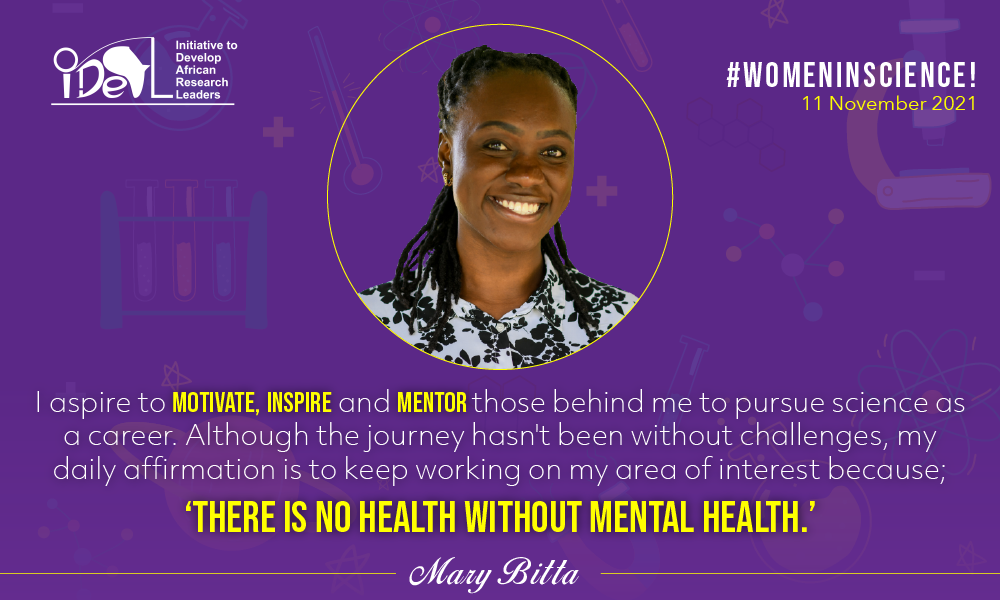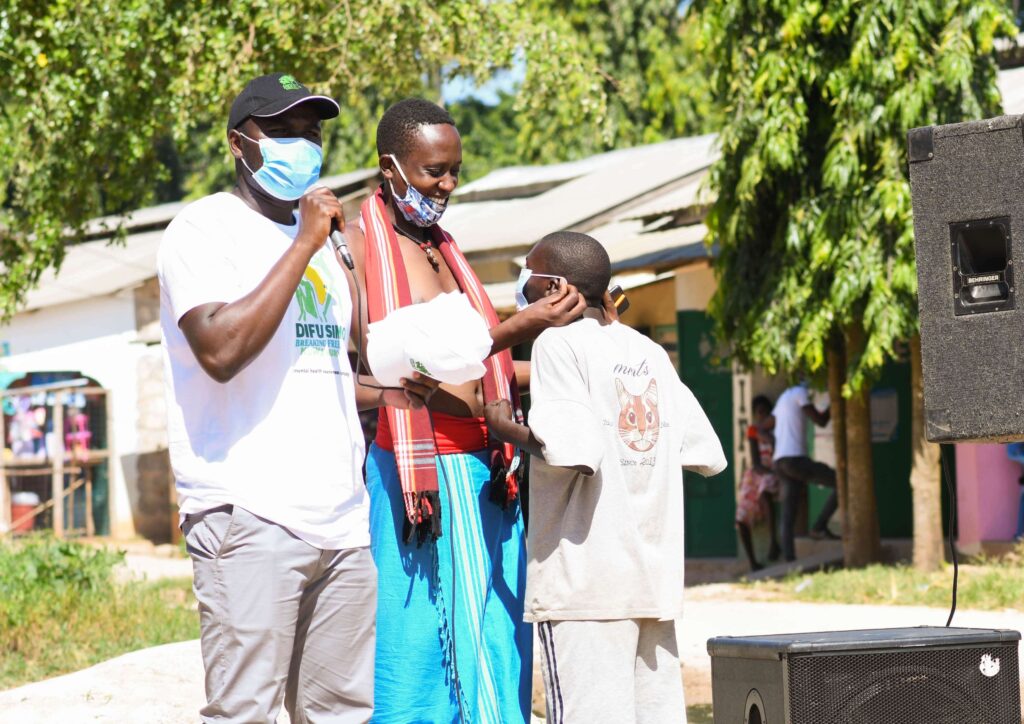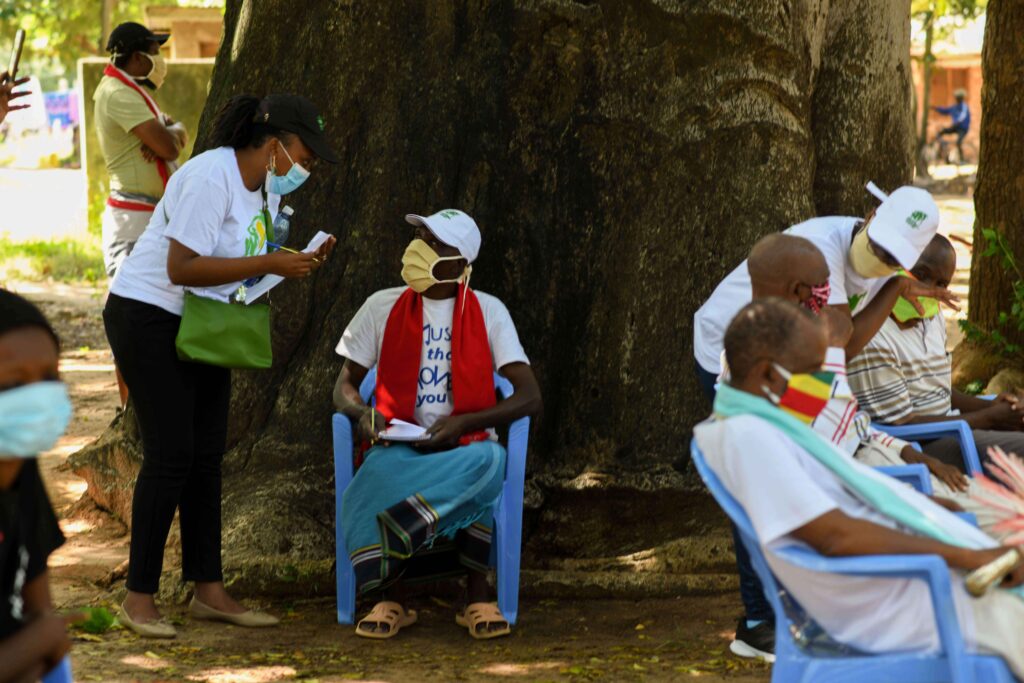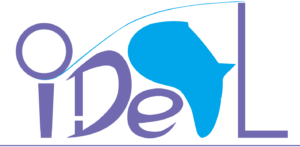News
There is no health without mental health
February 11, 2021
The most challenging question I continuously face in my career as a trained nurse and mental health researcher is “how my passion for mental health developed”. Reflecting on my professional and personal experiences, I realize that there isn’t a specific date or event, but I have always been curious about the human brain in health and disease. Additionally, as a natural empath, I am deeply drawn to human suffering related to mental ill-health and my commitment to working in the community.
My current research work is based at the KEMRI-Wellcome Trust Research Programme in Kilifi, Kenya. It evaluates the effectiveness of community-based interventions in reducing the proportion of people with mental illness who do not access health care; a phenomenon referred to as the treatment gap.
Global estimates indicate that only about 1 in 10 people with mental illnesses access minimally adequate care in most low resource settings. My first encounter with the extensive treatment gap in mental disorders was during my masters’ project, where I examined suicide trends using retrospective data. I found that the death rate by suicide was about 4.6 per 100,000 persons, but hospital records showed that none of the victims sought help for mental distress at any point in their lives. One of the leading causes of this gap was stigma due to misconceptions about these illnesses’ causes and outcomes. This formed the basis of my present work, where I use both qualitative and quantitative research methods to evaluate the effectiveness of interventions aimed at lowering this gap.
The pathways of care for people with mental illnesses in Kilifi involve biomedical practitioners, traditional health practitioners and faith healers. Part of my qualitative research highlighted that most patients often mix care from these practitioners. Unfortunately, the practitioners do not communicate with each other, leading to delayed care for most patients, often with poor outcomes. Realizing the need to initiate dialogue and collaboration between practitioners, we formed the ‘Difu Simo’ collaboration in 2019. ‘Difu Simo’ is a mental health awareness campaign conducted in Kilifi County. It is a phrase from the local Kigiriama language meaning “Breaking Free”.

The project aims to create platforms for dialogue between biomedical practitioners, traditional health practitioners and faith healers to encourage patient referral to hospital to improve outcomes. The project is a collaboration between KEMRI-Wellcome Trust, County Government of Kilifi, Malindi District Cultural Association and the Documentary Institute of Eastern Africa. It explores the usefulness of participatory art in initiating and sustaining dialogue about mental health.
Our most recent awareness campaign, dubbed “Vilalu si Utsai”, meaning “Mental illness is not witchcraft” was a weeklong campaign between 3rd and 9th August 2020. The ultimate challenge for this campaign was to ensure that we adhered to the COVID-19 guidelines while still engaging communities about mental health. After successfully over one thousand community members in 6 different locations, we learnt a lot about the cultural beliefs of the Mijikenda towards people with mental illness, and this will significantly inform the subsequent stages of our work.
Preliminary results of our work’s evaluation indicate that art is an effective way of initiating dialogue about taboo topics such as mental health. Our qualitative work has also provided insights into the beliefs and practices surrounding mental illness, and this will significantly inform the design of future interventions for this context and beyond. A significant achievement of the project was successfully initiating dialogue between traditional health practitioners and biomedical practitioners since these two groups of practitioners are the primary health care providers for people with mental illness in Kilifi. Additionally, community members pledged to form volunteer-led groups to provide homeless people with mental illness with basic needs such as food and clothes. This indicates that the project is challenging status quo about stigma towards people with mental illness.

Leading the Difu Simo collaboration hasn’t been without challenges. As a young female researcher in an almost all-male field, I have quickly learnt how to negotiate for equity in decision-making and express my views respectfully but firmly. My cautious approach in navigating sensitive arguments between the different practitioners and within my team has earned me the Giriama name Dhahabu which means gold.
IDeAL manages administrative support for my research work and has been instrumental in my research career by giving me the first opportunity to pursue research through their post-graduate diploma (PGD) program.
My research journey with IDeAL has been full of important lessons and opportunities for growth, mainly because of their emphasis on collaborative working and asking research questions that tackle contextually relevant problems. Since joining IDeAL five years ago, as a member of the pioneering cohort for the PGD program, I have gone on to do my masters and currently pursuing my doctorate, with support and mentorship from a high caliber of mentors.
IDeAL’s emphasis on mentorship and knowledge sharing has seen me supervise one post-graduate diploma studentship to successful completion and mentored several others. I have co-authored eight peer-reviewed publications, and I remain focused on completing my doctorate studies and continuing my research career.
I aspire to motivate, inspire and mentor those behind me to pursue science as a career, as I have been mentored by those before me. Although the journey hasn’t been without challenges, my daily affirmation is to keep working on my area of interest that; “There is no health without mental health”.
Mary Bitta is an IDeAL PhD fellow.
- 51
- 66
- 48
- 104
- 44
- 423


Share: